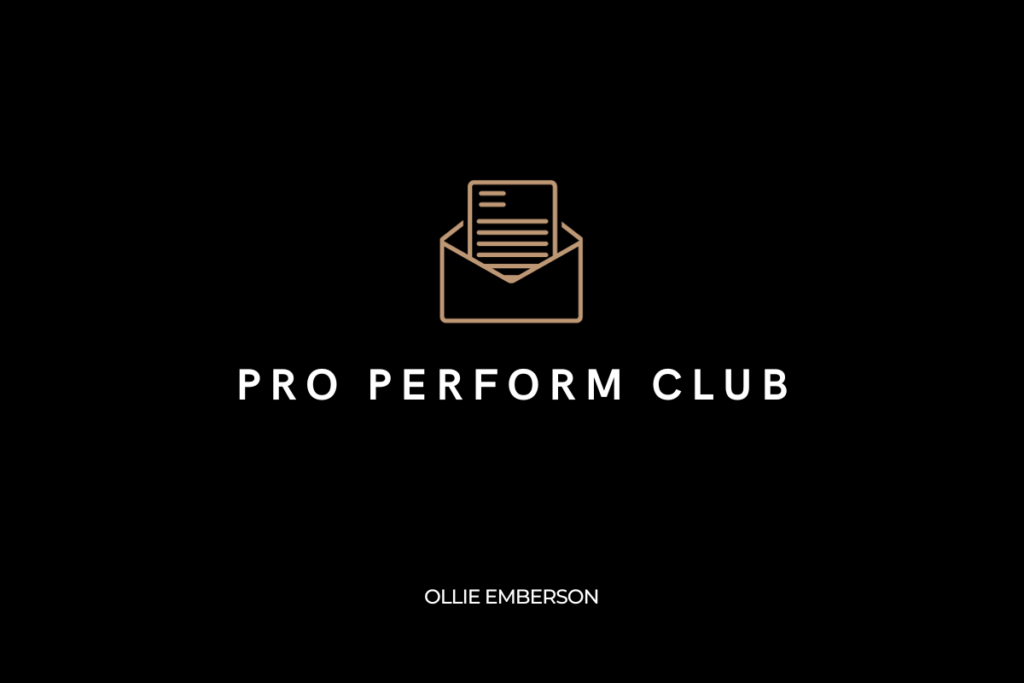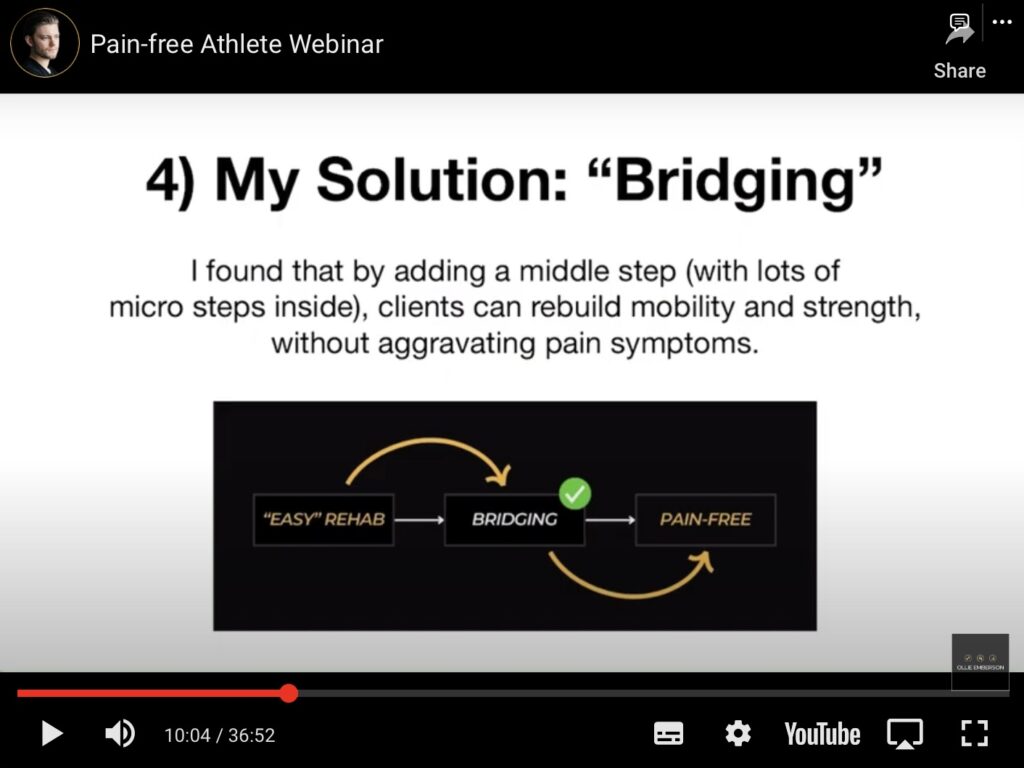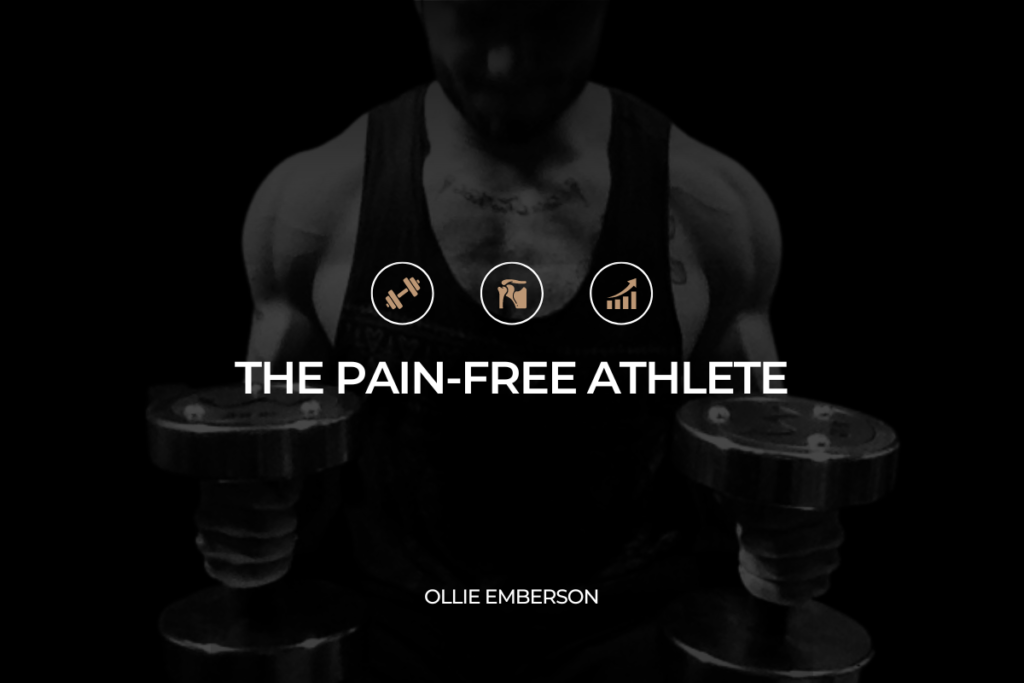I clenched my teeth in frustration:
“I don’t think the program is working – my pain has been awful this week”
My physio sat back on his stool…
Took a deep breath…
And asked:
”What’s changed this week?”
Truth is, the program hadn’t changed… It been the same for 6 weeks.
And up until now, everything had been fine. My numbers were going up. I was stronger. More mobile. And more athletic.
The program was working.
But if that was the case, what changed? Why was I in more pain this week?
💡A lightbulb went off💡
“Well, it’s been a really tough week at work… I’ve had a lack of sleep… and been more stressed than usual”
My physio nodded with a smile on his face.
“Bingo dear Oliver”
Cheeky bugger. He knew that was the answer I’d give him!
This was the day I learned that stress impacts chronic pain symptoms, and that a concept called “sensitisation” plays a huge role in chronic pain and injury.
If you have a chronic injury or pain:
It will be IMPOSSIBLE for you to recover if you don’t understand a concept called “Sensitisation”.
Below, I’ve written 6 things you MUST know about Sensitisation (+ 3 ways you can solve it for good):

Must-know #1
Long term pain MODIFIES how the nervous system works, and people become MORE sensitive to pain…
This means they experience pain more, and with more intensity, despite less provocation.
Must-know #2
This increase in pain (above) does NOT mean you’re in danger… Or that anything is damaged or in trouble.
Must-know #3
Chronic pain often outlives it’s original cause and gets worse over time… This can cause pathological changes to the brain and spinal chord.
Must-know #4
Had pain for a long time? You likely have some degree of sensitisation…
But it IS very hard to diagnose because there’s a gap in science…
There’re no set or clear-cut criteria that says “hey! Yep, that’s sensitisation”
Must-know #5
Sensitisation causes “pain hallucinations”.
You see (or feel) pain, but there’s no damage, danger, or trouble to explain why that pain is there.
Must-know #6
There is no “clear cut” treatment for sensitisation…
The best route is to “recalibrate” the body, and teach it what a “normal” stimulus is – and that this normal stimulus shouldn’t be painful (More on this at the end).
Must-know #7
How do you know if you have sensitisation?
Here’s what increases your risk…
Overuse of stimulants, chronic stress, poor sleep, anxiety, high alcohol consumption, depression, serious pessimism or catastrophising and anything else that drains or menaces you.
Ps. I’m about to tell you what you can do to defeat sensitisation, but if you have questions about what you’ve read – click here and email me.

#1) Exercise
You don’t need to “fix” weaknesses or muscle issues if sensitisation is your issue.
Why?
Instead, use exercise in two ways…
A) Expose
- Use exercise to overcome your fears.
- Face your pain + challenge your body.
- Show your body it’s SAFE to do hard things.
By doing so, your body will say “hey… we just did this thing we’re still alive… so what are we freaking out about!?”
B) Avoid
- Avoid pain, be gentle + protective.
- Minimise aggravation or painful ranges.
- Adapt exercise to reduce pain symptoms.
You’re trying to “calm sh*t down” with the above, and regress exercise to the point where it’s comfortable enough to do. We do NOT want to stay here forever because life will suck.
A good rehab programme will include a bit of B, and a lot of A.
#2) Health
Poor health increases stress on the body… which then increases your sensitivity to pain.
Diet advice:
- 0.8-1.2g protein / lb bodyweight
- Lose weight if you need to
- Eat 25-35g fiber per day
- Eat 80% natural foods
- Drink 3-5l water
Sleep advice:
- Set a bed time alarm
- Get 7-8h sleep per night
- Switch of tech 30-60m before bed
This will all make you feel better. More energetic. And more confident.
#3) Education
You fear what you don’t understand.
And every time you feel pain, you think something is wrong. But I hope by now you realise that’s not always the case…
By learning about pain, you:
- Destroy unhealthy beliefs
- Increase your confidence
- Reduce your anxiety
And ultimately, it gives you more freedom to do what you want with your body without fear.
Hope you found this email useful.
Your friend,
/Ollie Emberson
Ps. If you’ve been injured for 6+ months and physio has failed to provide lasting results — apply for a free consultation here.
We’ll put together a plan that helps you eliminate your injury, pain, or joint issues (for good).




